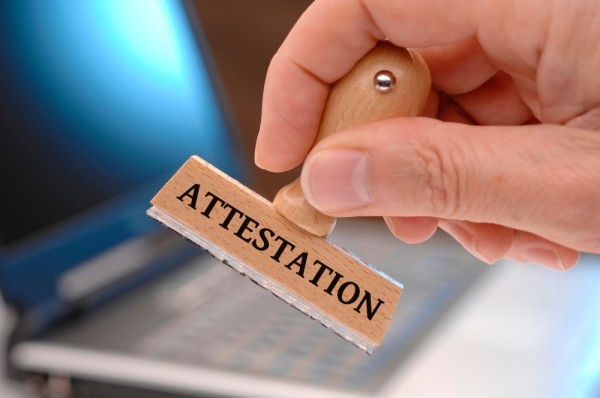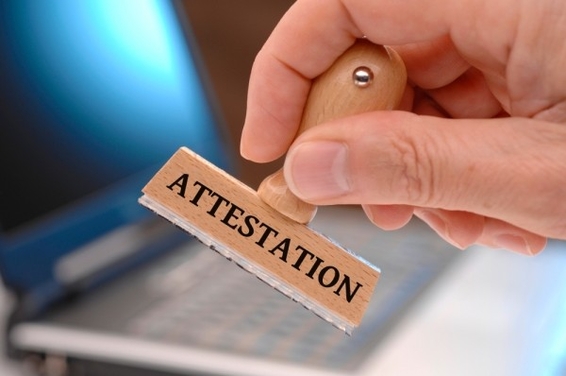Australia is an increasingly popular destination for students, professionals, and families worldwide due to its high-quality education, diverse job opportunities, and excellent standard of living. However, moving to Australia often involves a complex set of legal requirements, one of which is certificate attestation. Certificate attestation is a process that verifies the authenticity of your personal, educational, and professional documents, making them acceptable to Australian authorities. In this article, we’ll walk through the ultimate checklist for meeting Australia’s certificate attestation requirements.
What is Certificate Attestation?
Certificate attestation is a series of endorsements from various government departments, embassies, and consulates to validate the authenticity of your documents. For Australia, attestation ensures that the documents you submit—whether educational, personal, or commercial—are genuine and not falsified. This process is essential for individuals planning to study, work, or settle in Australia, as unverified documents may result in delays or even rejection of your visa or employment applications.
Why is Certificate Attestation Important?
Certificate attestation is crucial because it:
- Ensures Legitimacy: Attestation verifies that the documents provided are authentic and issued by recognized institutions.
- Prevents Fraud: It safeguards against fraudulent or forged documents, protecting both applicants and Australian authorities.
- Streamlines Procedures: Verified documents expedite visa processing, admission to educational institutions, and job applications.
- Confirms Compliance: It demonstrates that you comply with Australia’s stringent immigration, educational, and employment standards.
Types of Certificates for Attestation
Before diving into the checklist, it’s essential to know the different types of documents that may need attestation. These documents generally fall into three categories:
- Educational Certificates: Degrees, diplomas, transcripts, and other academic qualifications.
- Personal Certificates: Birth certificates, marriage certificates, death certificates, police clearance certificates, and passports.
- Commercial Documents: Power of attorney, trade licenses, invoices, and other business-related documents.
Each of these categories has specific requirements and steps for attestation, which can vary depending on the Australian state or territory where you plan to reside.
The Step-by-Step Attestation Process
Certificate attestation involves multiple stages. Let’s go over each step:
Step 1: Notary Attestation
The first step for any document, regardless of category, is obtaining attestation from a notary. A notary public authenticates the document, confirming that it is genuine and properly signed. This step is mandatory as it serves as the foundation of the attestation process.
- Documents Required: Original certificates and a valid photo ID.
- Tip: Ensure the document is free from any damage or tampering before approaching the notary.
Step 2: Home Department or Education Department Attestation
Once notarized, personal documents such as birth, marriage, and death certificates require attestation from the Home Department or relevant state authority. For educational documents, you need attestation from the Education Department in the state where your institution is located.
- Documents Required: Notarized original certificates, a copy of your passport, and sometimes an affidavit.
- Tip: Check if your document falls under the jurisdiction of a specific department, as requirements may vary between states.
Step 3: Ministry of External Affairs (MEA) Attestation
The Ministry of External Affairs (MEA) is the government body responsible for the next stage. MEA attestation is mandatory for documents going abroad, as it confirms that the document is legally recognized by the issuing country.
- Documents Required: Notarized and department-attested original certificates.
- Tip: This stage can take time, so it’s best to initiate the process well in advance of your planned departure date.
Step 4: Embassy or Consulate Attestation
After MEA attestation, the document must be attested by the Australian Embassy or Consulate in your home country. This is a critical step, as it confirms that the Australian authorities acknowledge the document as valid and credible.
- Documents Required: MEA-attested original certificates, a copy of your passport, and sometimes additional supporting documents.
- Tip: Be aware of the embassy’s working hours and holiday schedule to avoid unexpected delays.
Step 5: Legal Translation (If Required)
If your document is not in English, it may need to be legally translated. This step is not mandatory for all documents, but it is essential for non-English certificates to ensure that Australian authorities understand and accept them.
- Documents Required: Original document, notarized and attested as per the above steps.
- Tip: Hire a certified translator who is recognized by the Australian authorities to avoid issues during document verification.
Step 6: Final Verification in Australia
Once in Australia, you may need to present your attested documents to local authorities, employers, or educational institutions. Some organizations may request additional verification, especially for professional qualifications, so it’s essential to keep your attested documents readily available.
Key Points to Remember
- Start Early: The attestation process can take several weeks, especially if you need multiple documents attested.
- Organize Documents Properly: Keep your documents in order of the attestation process and store copies of each stage for future reference.
- Verify Requirements with Institutions: Different Australian institutions, employers, and immigration offices may have specific requirements.
- Keep Originals Safe: Avoid damage to original documents during transit by using secure, protective folders.
Common Challenges in Certificate Attestation
Certificate attestation can be a straightforward process, but it comes with potential challenges:
- Processing Delays: Government departments often have long processing times. Applying well ahead of your anticipated travel date can help mitigate delays.
- Documentation Errors: Missing documents or incorrect information can result in rejection. Double-check each document before submission.
- Varying Requirements by State: The attestation process can vary depending on your state or territory in Australia. Some regions may require additional verification or stamps.
- Legal Translation Issues: If translation is required, uncertified translations may lead to complications. Always work with certified translators to avoid misunderstandings.
Costs Involved in Certificate Attestation
The cost of certificate attestation can vary widely depending on the type and number of documents, notary fees, and embassy charges. Here’s a breakdown of typical expenses:
- Notary Fees: Generally affordable, but varies based on location and notary service.
- Department Attestation Fees: Home and Education Departments may charge nominal fees or be free, depending on the region.
- MEA and Embassy Fees: These fees vary and are usually the highest costs in the process.
- Translation Fees: If translation is required, the fee will depend on the length and complexity of the document.
FAQs about Australia Certificate Attestation
1. How long does the entire attestation process take?
Typically, it can take anywhere from two weeks to two months, depending on the volume of documents and the efficiency of the relevant departments.
2. Do I need to get my certificates attested before applying for a visa?
Yes, it’s advisable to have your certificates attested before applying for a visa, as attested documents may be required during visa processing or later.
3. Can I get my documents attested without going through the entire process?
No, skipping any step in the attestation process may render your documents invalid in Australia.
4. Do I need to attest copies or originals?
Most attestation processes require original documents. However, some entities might accept attested copies, so check with the relevant authorities.
Conclusion
Certificate attestation for Australia is an essential process that ensures the legitimacy of your documents and compliance with Australian regulations. While the process may seem overwhelming, following this checklist can streamline your experience and prevent potential setbacks. Whether you’re heading to Australia for studies, work, or residency, planning and preparing early can make a world of difference. With the right approach, you’ll have your documents attested and ready to support your new journey in Australia.





